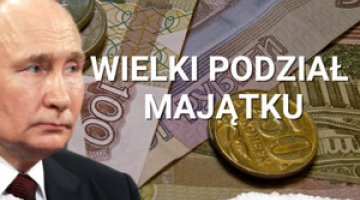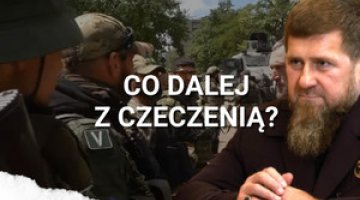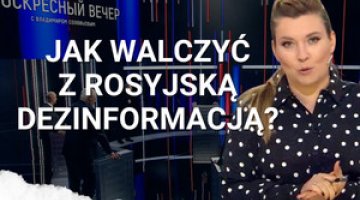Russia: the rise and fall of the summer protests
Since mid-July there have been a series of protests in Moscow against the ban on independent candidates running in the 8 September elections to the Moscow City Duma, even though they formally met the criteria. The protests climaxed in a demonstration on 10 August, in which up to 60,000 people participated. The increased support for the protests shows that a new generation of ambitious opposition politicians and their supporters have emerged in Russia, who are engaging in protests of ‘dignity’ in reaction to the authorities’ ostentatious moves to block the opposition from participating in the electoral process. The camp of the government’s opponents, which is being supported by celebrities and idols of the young generation, is gradually building up its organisational potential: it is able to meet the strict formal requirements related to the electoral process, to organise protests (even though the most charismatic leaders have been detained), and to provide legal and financial assistance to the protesters. However, this activity has still not reached the critical mass which could affect the authorities’ stance, and its dynamic is largely dependent on what tactics the rulers choose to adopt, i.e. whether the rallies are authorised or not.
The Russian government is determined to prevent the opposition from developing – both in terms of its participation in official political life and its activity on the street. Regardless of any loss of face, and without hesitating to resort to fraud, the authorities will not allow the opposition to take part in the elections, and they have already used brute force and numerous forms of intimidation against the participants in the illegal protests: initiating criminal and administrative proceedings against them, and imposing high fines. This strategy is supposed to discourage active manifestations of dissatisfaction, not only from declared opposition supporters, but also from the wider public, which displays the passive dissatisfaction caused by the socio-economic conditions in the country.
The protests’ dynamics
The wave of protests has been ongoing since July 17, mainly in Moscow, as they directly concern the opposition groups who have not been allowed to run for seats in the Moscow City Duma. An authorised permitted protest on 20 July brought together over 22,000 participants; the unauthorised protest on 27 July numbered 15,000 (1370 of whom were detained). The action carried out on 3 August without permission from the authorities saw several thousand people demonstrating (about 1000 of whom were detained), while the legal demonstration on 10 August saw close to 60,000 people participate. The opposition did not obtain permission to organise the protests on 17 and 24 August (on 17 August only a series of one-man pickets took place). In total, about three thousand people were detained during the protests in Moscow alone. The Investigative Committee is conducting an investigation, and so far 13 people have been arrested on charges of organising mass riots and assaulting officers. The most important protest leaders are in administrative detention, including Aleksei Navalny (who received 30 days’ detention until 24 August), Dmitri Gudkov (30 days until 30 August) and Ilya Yashin (10-day detention, which has been extended for the fourth time).
The 10 August demonstration was the largest opposition action since the period of social mobilisation in the years 2011-12 (in that period the protests attracted up to 100,000 people). The dynamics of the protest activity during the last month, however, confirm that assemblies which the municipal authorities have authorised can count on higher attendances. The lack of such authorisation, together with the repression of the participants, make only the most determined people take to the streets, usually ten or so thousand. This may make the authorities much less inclined to authorise subsequent protests, as it will give the security services the pretext to use force, the prosecutor’s office to press charges, and will discourage potential participants from attending.
Show of force
The authorities’ strategy boils down to preventing the opposition from participating in official political life, both to reinforce the conviction that there is no alternative to the current ruling camp, and because of the problems that could arise from the presence of an opposition force which is not ‘systemic’ in the Moscow parliament. Although the Moscow City Duma is not a key institution in the state administration, the presence of opposition deputies there would give them an insight into the structure of expenditure in the Moscow budget (which this year amounted to US$35.5 billion); they would receive the right to visit state offices or police stations, and to apply to officials and the prosecutor’s office for information. From the authorities’ point of view, this would increase the risk of the opposition gaining access to sensitive information, publicising cases of corruption related to the capital’s budget, and being able to intervene in the cases of protesters’ arrests.
The government’s tactic is to demonstrate its superior strength against all manifestations of active dissatisfaction, with the aim of making the public aware what the costs of opposition activity are. The authorities did not hesitate to use force against the demonstrators: the protests were brutally dispersed by officers of the National Guard (Rosgvardia) which reports directly to the President. Many security officers mingled with the crowd and photographed the protesters. There have been numerous cases of peaceful protesters being beaten by Rosgvardia officers, but the Investigative Committee has rejected all complaints by lawyers regarding the siloviki’s violent behaviour. These actions, which were affirmed in official statements from President Putin and other officials, are a signal to the protesters that the authorities will not hold back from the use of repression, and to the institutions of force that if they carry out the work of repression obediently, they will be guaranteed impunity.
The protesters have also been subjected to other forms of pressure and intimidation: criminal prosecutions are underway against some of them for organising mass unrest (punishable by terms of imprisonment from 8 to 15 years; about 30 people were convicted of similar charges after 2012 in the so-called Bolotnaya trial), as are numerous administrative proceedings. Steep fines are also being handed down (e.g. a total fine of US$14,000 for Lyubov Sobol, an associate of opposition leader Aleksei Navalny); also, at the authorities’ inspiration, municipal transport companies and restaurants in the city centre have brought charges against the protest organisers. Warnings against ‘getting mixed up in politics’ have also been addressed to students by the deans of several prestigious universities.
Another element of the psychological pressure being put on the protesters is the series of accusations that they have been acting on inspiration from the West. The US and German embassies in Moscow have recently heard complaints that they incited the protests. The State Duma has announced the appointment of a special commission to investigate foreign interference in Russian affairs, including the upcoming elections. This commission may also serve as a propaganda counterweight to the US team led by prosecutor Robert Mueller examining Russian interference in the elections there, and will give the Duma an opportunity to ‘unmask’ alleged Western involvement in destabilising the situation in Russia.
A change is coming ... slowly
The upsurge in the protests, including the largest political demonstration in seven years, show that a new generation of opponents to the government has crystallised, and that they have their own political representatives: opposition politicians, and local government or anti-corruption activists like Navalny, Sobol, Yashin, Gudkov and many others. Around them is gathering a whole galaxy of civic activists from the young generation, students at prestigious Moscow universities, and freelancers. They are demanding the right to choose in political life, as well as increased public supervision of the government, and their demands and activities are being supported by many Russian celebrities and idols of the young generation, including rappers and vloggers such as Yuri Dud, who have millions of followers and speak to young people in a way they understand. An important centre for coordinating the protests, which earlier assisted in preparations for the elections, is Navalny’s Anti-Corruption Foundation. In addition, there are a number of crowdfunding projects supporting detainees (offering legal and financial assistance, etc.) and enabling the identification of violent officers (Skaner, Baza). The opposition’s modern style contrasts increasingly with the attitude of the authorities – their reaction with brutality, and their conservative and anti-Western narrative, which is reminiscent of Communist ‘newspeak’. Moreover, the violent actions of Rosgvardia have met with public criticism even from pro-government celebrities, such as the singer Yegor Krid (who has 11 million followers), the producer Yana Rudkovskaya and the singer Sati Kazanova.
However, at present the scale of the opposition’s mobilisation still has clear limits. The critical attitude towards the political stagnation and the state’s repression which predominates among the active urban groups does not translate to a critical mass of protesters. On the scale of Russia as a whole, or even of Moscow, they are still a relatively small group, albeit active and determined. The authorities have the clear advantage in this clash: they can prevent the opposition from participating in official politics; isolate the opposition leaders in custody; co-opt the administrative apparatus and university authorities into applying pressure; and intimidate the broader groups who are critical of the authorities, and discourage them from actively manifesting their dissatisfaction. For this reason, the emergence of a mass protest movement in Russia seems unlikely in the near future, despite the rise in social discontent caused by economic, political and ecological factors.





